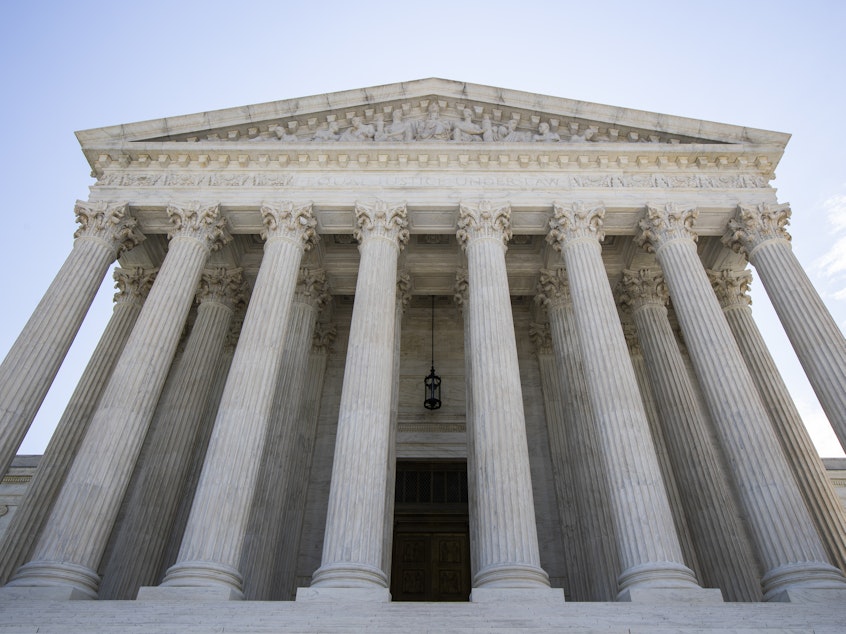Supreme Court Acts To Postpone More Controversies, From Mueller Report To Abortion

The U.S. Supreme Court agreed Thursday to hear arguments this fall in a case that pits the Trump administration against the House Judiciary Committee and its efforts to see redacted portions of report on Russian interference prepared by special prosecutor Robert Mueller. The decision is a significant blow to House Democrats' efforts to see the material before the November election.
The U.S. Court of Appeals for the District of Columbia had previously ruled that the House Judiciary Committee was entitled to see usually secret grand jury material that was redacted by the Trump Justice department from the Mueller report when it was handed over to the committee.
At the request of the Justice Department, the high court temporarily blocked the lower court order from going into effect. And now the court has agreed to hear the case this fall, with a decision almost certain to come after the election.
The House went to court a year ago to get the grand jury material before the formal beginning of impeachment proceedings. More recently, House lawyer Douglas Letter told the justices that the inquiry did not end with the president's impeachment by the House and his acquittal by the Senate in February. The Trump administration, however, maintains that the investigation ended with the acquittal and that the House thus has no need for the material.
In a statement, House Judiciary Committee Chairman Jerrold Nadler, D-N.Y., expressed disappointment in the Supreme Court's decision to allow President Trump and Attorney General William Barr to "run out the clock on all accountability."
Sponsored
"In every administration before this one," Nadler observed, the Department of Justice "has cooperated with the Judiciary Committee's requests for grand jury materials relating to investigations of impeachable offenses." Trump and Barr, he said, "broke from that practice."
"While I am confident their legal arguments will fail," he concluded, "it is now all the more important for the American people to hold the president accountable at the ballot box in November."
Other Controversial Cases
The court's action was one of several on Thursday that essentially kick the can down the road in cases involving controversial subjects.
Just days after striking down a Louisiana abortion law, the court declined to take up an Indiana law, signed by then Gov. Mike Pence, that imposes a variety of restrictions on abortion, including requiring an ultrasound test and an 18-hour waiting period before an abortion.
Sponsored
The Seventh Circuit Court of Appeals blocked the restrictions from going into effect, but the justices ordered the lower court judges to reconsider their decision in light of the Supreme Court's abortion decision earlier this week. The court could have simply turned aside the Indiana case, so the order suggests that Chief Justice John Roberts, who this week cast the decisive fifth vote to invalidate a Louisiana abortion law, may well be prepared to accept other kinds of restrictions, as he seemed to suggest in his solo opinion on Monday.
Lastly, on Thursday, the Supreme Court refused to expedite a petition that would have allowed the justices to hear arguments and rule prior to the November election on a petition from the Texas Democratic Party and Texas voters who want all registered voters in the state to be able to vote by mail. A Federal District Court judge in Texas had ordered the state to allow the mail-in ballots for all eligible voters, but that judgment was overruled by the Fifth Circuit Court of Appeals. The justices' refusal to consider speeding up their review process means that even if they decide to review the Fifth Circuit ruling in the fall, it almost certainly won't be in time for the 2020 election cycle. [Copyright 2020 NPR]

